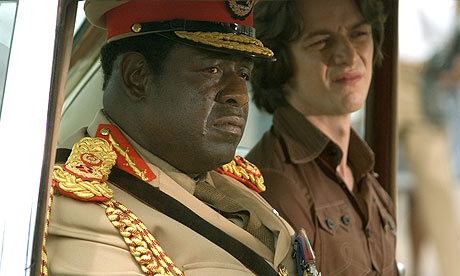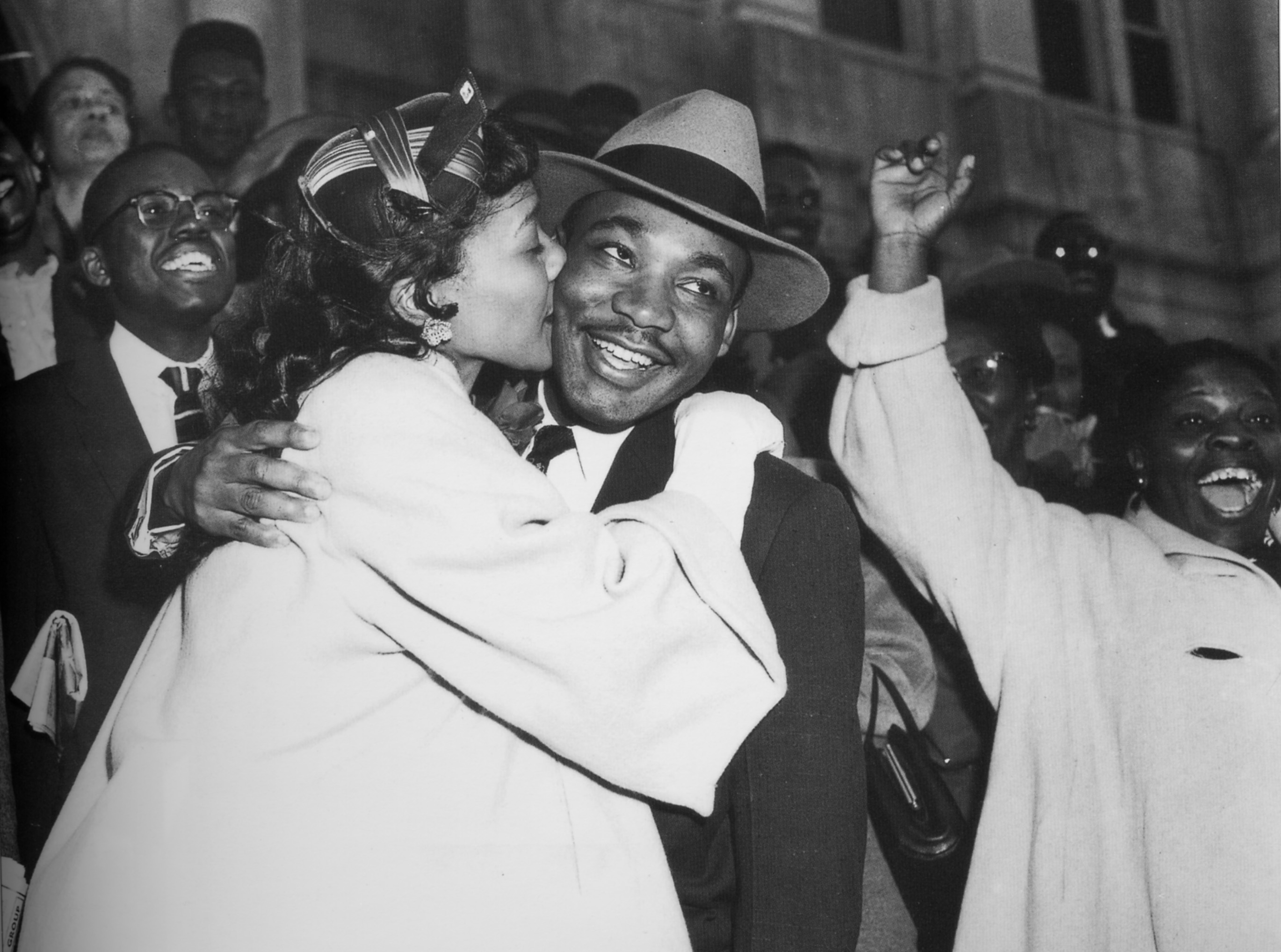“‘It was probably the most shocking thing of my life…I couldn’t describe to you the emotions I have had…everything from anger to outrage to reflection to some pride and glory.” Genealogists discover a hitherto unknown historical (and perhaps genetic) link between Al Sharpton and Strom Thurmond: namely, in the dark days of slavery, Thurmond’s people owned Sharpton’s. “‘In the story of the Thurmonds and the Sharptons is the story of the shame and the glory of America,’ Sharpton said Sunday.“
Tag: History
Old Dominion.
“This session will be remembered for a lot of things, but 20 years hence I suspect one of those things will be the fact that we came together and passed this resolution.” In related news, the Virginia General Assembly unanimously expresses “profound regret” for Virginia’s hand in slavery, becoming the first state to do so. “The measure also expressed regret for ‘the exploitation of Native Americans.’“
Another Roadside Attraction?
The King of the World? Director and documentarian James Cameron announces, for a forthcoming Discovery Channel special, that archaeologists have discovered the tomb of Jesus…and his son. “‘How possible is it?’ Pfann said. ‘On a scale of one through 10 — 10 being completely possible — it’s probably a one, maybe a one and a half.’”
And, smiling, Jackie’s driving by.
Unearthed from the collection of amateur photographer George Jefferies, a new 8mm film of Kennedy in Dallas comes to light. “The silent, 8 mm color film is ‘the clearest, best film of Jackie in the motorcade,’ said Gary Mack, curator of the Sixth Floor Museum, which focuses on Kennedy’s life and assassination.” Also, via Ted, Case Closed author Gerald Posner parses the footage.
Old Soldiers Never Die.
“Having now finished the work assigned me, I retire from the great theatre of action, — and bidding an affectionate farewell to this August body, under whose orders I have so long acted, I here offer my Commission, and take my leave of all the employments of public life.” After much negotiation with the family who’s held the draft for generations, the State of Maryland acquires the original version of George Washington’s military resignation speech of 1783 (in which he announced his standing-down from the Revolutionary army and helped set the precedent of civilian control over the newly-independent United States.) The manuscript will be unveiled today, as part of Washington’s birthday festivities.
War is a Force That Gives Us Meaning.
“Faust’s interpretation helps explain the way the US responded to the 9-11 terrorist attacks with a war on Iraq. ‘Even a war against an enemy who had no relationship to September 11’s terrorist acts would do,’ she notes. People supported war not just because of the rational arguments offered by the White House, but also ‘because the nation required the sense of meaning, intention, and goal-directedness, the lure of efficacy that war promises.’ It was especially necessary to restore a sense of control after the terrorism of 9-11 had ‘obliterated’ it. The US, she concludes, ‘needed the sense of agency that operates within the structure of narrative provided by war.’” In the pages of The Nation, Jon Wiener evaluates new Harvard president Drew Gilpin Faust’s work on war mania.
That’s Professor Robocop to you.
“It’s hard to imagine what freshmen think when they wander into Professor Banzai’s lecture hall. Weller reports that he loses a lot of students after the first class. ‘They thought they were going to get the easy A from old RoboCop,’ he says with a laugh.” Peter Weller, Ph.D. (pending) (By way of Quiddity.)
Hearts in the Highlands.
 All the King’s Men by way of Heart of Darkness (and more than a dash of Hotel Rwanda), Kevin MacDonald’s The Last King of Scotland is a harrowing portrait of the scampish, fun-loving, paranoid, and genocidal Idi Amin, former president/warlord of Uganda, and a moderately engaging cautionary tale about the dangers of seeking to find oneself in a place one doesn’t belong. Somewhat clunkily assembled (despite being co-written by Peter Morgan, screenwriter of The Queen) and suffering from a third act that, like its protagonist, gets lost somewhere amidst its downward trajectory, The Last King of Scotland is a film mostly redeemed by excellent performances — notably Forest Whitaker as Amin and James McAvoy as our (anti-)hero, but also Gillian Anderson, Simon McBurney, and others in supporting roles. It wasn’t quite as good as I was hoping or expecting, but it’s definitely worth a rental — for Whitaker if for nothing else — if you can handle the increasingly graphic carnage of the film’s final hour.
All the King’s Men by way of Heart of Darkness (and more than a dash of Hotel Rwanda), Kevin MacDonald’s The Last King of Scotland is a harrowing portrait of the scampish, fun-loving, paranoid, and genocidal Idi Amin, former president/warlord of Uganda, and a moderately engaging cautionary tale about the dangers of seeking to find oneself in a place one doesn’t belong. Somewhat clunkily assembled (despite being co-written by Peter Morgan, screenwriter of The Queen) and suffering from a third act that, like its protagonist, gets lost somewhere amidst its downward trajectory, The Last King of Scotland is a film mostly redeemed by excellent performances — notably Forest Whitaker as Amin and James McAvoy as our (anti-)hero, but also Gillian Anderson, Simon McBurney, and others in supporting roles. It wasn’t quite as good as I was hoping or expecting, but it’s definitely worth a rental — for Whitaker if for nothing else — if you can handle the increasingly graphic carnage of the film’s final hour.
 As the film begins, it’s 1970, and (the fictional) Nicholas Gerrigan (James McAvoy of The Chronicles of Narnia) is a recently-minted doctor and young, debaucherous Scotsman looking for a life less suffocating than the one on the plate before him, taking over the family practice. Choosing Uganda more or less at random (he spins a globe to choose his fate, but not without first exercising some veto power), Gerrigan soon finds himself one of two doctors on hand in an overworked clinic deep in the African hinterlands, where the only fun to be had is making flagrant passes at his colleague’s do-gooder wife (Gillian Anderson).
As the film begins, it’s 1970, and (the fictional) Nicholas Gerrigan (James McAvoy of The Chronicles of Narnia) is a recently-minted doctor and young, debaucherous Scotsman looking for a life less suffocating than the one on the plate before him, taking over the family practice. Choosing Uganda more or less at random (he spins a globe to choose his fate, but not without first exercising some veto power), Gerrigan soon finds himself one of two doctors on hand in an overworked clinic deep in the African hinterlands, where the only fun to be had is making flagrant passes at his colleague’s do-gooder wife (Gillian Anderson).
Fate rescues Gerrigan from his ennui, however, in the form of a traffic accident — one which brings him to the attention of Uganda’s new leader, the Scotland-adoring Idi Amin (Whitaker). Soon thereafter, Gerrigan has been made Amin’s personal doctor and “closest advisor,” meaning he spends a lot of time dissolute by the pool, unwittingly (and soon deliberately) oblivious to the bloody machinations holding Amin’s regime in power. That is, until his own somewhat-inadvertent complicity in a murder — as well as some really poor life decisions — force Gerrigan to confront the monstrosities laid before him. This place is a prison, he soon discovers, and these people very clearly aren’t his friends.
 As it almost had to be, The Last King of Scotland is most enjoyable in its first hour, as Gerrigan is slowly seduced by the life Amin offers him, and all the sultry pleasures therein included. When it all turns on him, and Gerrigan discovers the heavy price of his fool’s paradise, the film quickly descends into a hell that’s not only hard to watch (one grisly scene brought back unsettling childhood memories of watching…I think it was A Man Called Horse — you’ll know it when you see it) but also somewhat repetitive. How many slo-mo shots of a druggy and/or horrified Gerrigan set to acid-rock do we really need here? Moreover, the film telegraphs one of the good doctor’s key indiscretions for far too long — at least forty minutes is spent simply waiting for the other shoe to drop, so to speak.
As it almost had to be, The Last King of Scotland is most enjoyable in its first hour, as Gerrigan is slowly seduced by the life Amin offers him, and all the sultry pleasures therein included. When it all turns on him, and Gerrigan discovers the heavy price of his fool’s paradise, the film quickly descends into a hell that’s not only hard to watch (one grisly scene brought back unsettling childhood memories of watching…I think it was A Man Called Horse — you’ll know it when you see it) but also somewhat repetitive. How many slo-mo shots of a druggy and/or horrified Gerrigan set to acid-rock do we really need here? Moreover, the film telegraphs one of the good doctor’s key indiscretions for far too long — at least forty minutes is spent simply waiting for the other shoe to drop, so to speak.
That being said, Forrest Whitaker’s performance here makes up for a lot of mistakes. (Seeing the clearly quiet-natured Whitaker’s shellshocked acceptance speech at the Globes last weekend made his work here seem all the more surprising and impressive.) The Willie Stark last year’s All the King’s Men desperately needed, Whitaker commands the camera in every scene he’s in — His Amin is all the more horrifying because he’s basically an overgrown boy, all appetite and no restraint. In every scene, you can sense him lumbering somewhere on the border between childish glee and murderous rage, and we never know where the axe will fall…only that, when it does, it’s not going to be pretty.
MLK 2K7.

“When our days become dreary with low-hovering clouds of despair, and when our nights become darker than a thousand midnights, let us remember that there is a creative force in this universe, working to pull down the gigantic mountains of evil, a power that is able to make a way out of no way and transform dark yesterdays into bright tomorrows. Let us realize the arc of the moral universe is long but it bends toward justice.”
— Martin Luther King (1929-1968)
Ground Control to Justice Bill.
Newly released — and somewhat controversial — FBI files, dating from the former Chief Justice’s two confirmation battles in 1971 and 1986, disclose that William Rehnquist battled a painkiller addiction in the early ’80s while serving on the Court. “Doctors interviewed by the FBI told agents that when the associate justice stopped taking the drug, he suffered paranoid delusions. One doctor said Rehnquist thought he heard voices outside his hospital room plotting against him and had ‘bizarre ideas and outrageous thoughts,’ including imagining ‘a CIA plot against him’ and ‘seeming to see the design patterns on the hospital curtains change configuration.’ At one point, a doctor told the investigators, Rehnquist went ‘to the lobby in his pajamas in order to try to escape.’“

